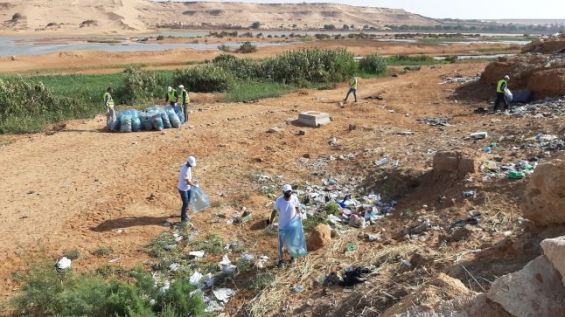The «SWITCH to Circular Economy Value Chains» project, backed by the European Union and the Government of Finland, has unveiled significant insights into Moroccan attitudes towards waste management and the circular economy.
A comprehensive survey involving 1,013 citizens from diverse demographics across six major regions—Agadir, Casablanca, Fes, Marrakesh, Rabat, and Tangiers—sought to gauge public understanding and behaviors concerning environmental issues. This initiative, which spanned both urban and rural areas, aimed to pinpoint potential catalysts for behavior change and assess the level of environmental awareness among Moroccans.
The survey results indicate a pronounced concern about plastic pollution, overshadowing even climate change in the public's priorities. An overwhelming 94% of respondents emphasized the critical need for proper disposal of plastic waste. Notably, 70% expressed strong agreement with this sentiment, highlighting widespread anxiety over the environmental repercussions of plastic waste. These findings underscore the pressing need for robust waste management strategies, reads a press release by the EU on Monday.
For the record, the Moroccan government has embarked on an ambitious journey to combat plastic pollution and transition towards a circular plastics economy. The National Strategy for Waste Reduction and Recovery aims to elevate the plastic recycling rate to 70%, a significant leap from 25% in 2015.
This strategy is bolstered by the Eco-Tax on plastics, implemented in 2013, which levies taxes on the sale, production, and import of plastic materials. The proceeds from this tax are reinvested into enhancing waste management infrastructure. Additionally, recent amendments to Law No. 28-00 on waste management and disposal are designed to facilitate plastics recycling and introduce extended producer responsibility measures, compelling producers to bear the full cost of pollution prevention and waste management.
The SWITCH2CE value chains initiative is poised to bolster these governmental efforts through a pioneering bottle-to-bottle pilot project, the same source added. This initiative aims to integrate the entire Moroccan value chain, from informal waste collectors to large-scale plastics recyclers, in a concerted effort to address the plastic waste challenge.





 chargement...
chargement...













